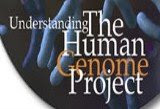 Life Science Space (June 9, 2008)--Attacking blood sugar levels with high drug doses can be dangerous
Life Science Space (June 9, 2008)--Attacking blood sugar levels with high drug doses can be dangerousPatients with type 2 diabetes, a high risk of cardiovascular disease, and who use aggressive measures to reduce their blood sugar levels could actually be shortening their lives, according to a large clinical trial. The results contradict the established theory that diabetics benefit from driving down their excessively high blood sugar levels as forcibly as possible.
The trial, part of ACCORD (Action to Control Cardiovascular Risk in Diabetes), made headlines earlier this year when this segment of the study was halted in February by a safety review board. The results are published today by The New England Journal of Medicine (1).
The results do not mean that diabetics should not work to keep their blood sugar under control, says cardiologist Harlan Krumholz of Yale Medical School in New Haven, Connecticut, but they do illustrate that taking extreme measures to lower blood sugar may not be warranted.
More than 10,000 type 2 diabetics, who either had cardiovascular disease or were at high risk for developing the condition, were enrolled in the trial. Roughly half used standard treatments to lower their blood sugar, and achieved an average level of ‘glycated haemoglobin’ – a measure of blood sugar – of 7.5%, which is thought to be acceptable, if higher than for a non-diabetic.
The other group used higher doses of the same drugs to lower their glycated haemoglobin, reaching levels of 6.4% over the course of a year. They maintained these low levels for just over three years.
Over the course of three and a half years, 257 people in the high-dosing group died compared with only 203 in the group that used standard doses.
Disturbing results
The finding shocked doctors, as they have been encouraged to lower blood sugar levels by any means possible. “The results are disturbing,” says Krumholz, who was not affiliated with the study. “This is a treatment strategy that people have been encouraged to adopt.”
Researchers have not yet worked out whether the fault lies with the methods used to lower blood sugar levels, or with the low blood sugar levels themselves. The American Diabetes Association recommends lowering glycated haemoglobin levels to below 7%; a non-diabetic would have levels of 5.5-6%, says study co-author Robert Byington of Wake Forest University in Winston-Salem, North Carolina.
Krumholz speculates that the negative effects may be a consequence of using higher doses of medications to lower the blood sugar levels. “As you start adding complex treatment regimens, you start offsetting the potential benefits with the added risk of adding medications,” he says.
Unclear cause
The drugs used by diabetics in the study included insulin, sulphonylurea and a class of drugs known as thiazolidinediones. That class includes rosiglitazone, marketed by GlaxoSmithKline as Avandia, which in a recent study was linked to an increased risk of cardiovascular problems. There is no clear link between rosiglitazone dosage and the increased death rate seen in the ACCORD study, says Byington. “We haven’t been able to identify any particular agent or treatment strategy that mediates the higher number of deaths,” says Byington.
Meanwhile another study, also published today (2), shows that intensive treatments to lower blood sugar levels can reduce the incidence a kidney disease commonly associated with diabetes. But the benefits were relatively minor, notes Krumholz.
The ACCORD results may encourage doctors to recommend lifestyle interventions – such as weight loss and exercise – as other options besides medication, Krumholz says.
References:
(1) The Action to Control Cardiovascular Risk in Diabetes Study Group N. Engl. J. Med. 358, 2545-2559 (2008).
(2) The ADVANCE Collaborative Group N. Engl. J. Med. 358, 2560-2572 (2008).
--------------------------------------------------------------------
Source: Nature News: http://www.nature.com/news/2008/080606/full/news.2008.879.html
Source: Nature News: http://www.nature.com/news/2008/080606/full/news.2008.879.html
.jpg)
.jpg)
.jpg)

.jpg)
.jpg)
No comments:
Post a Comment